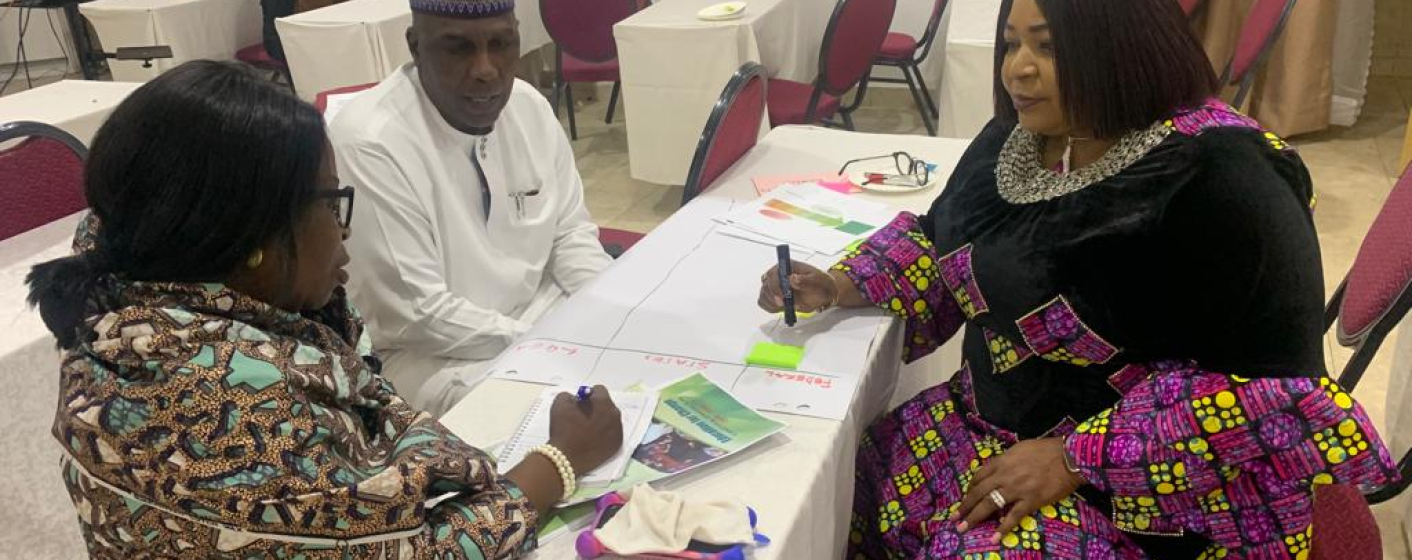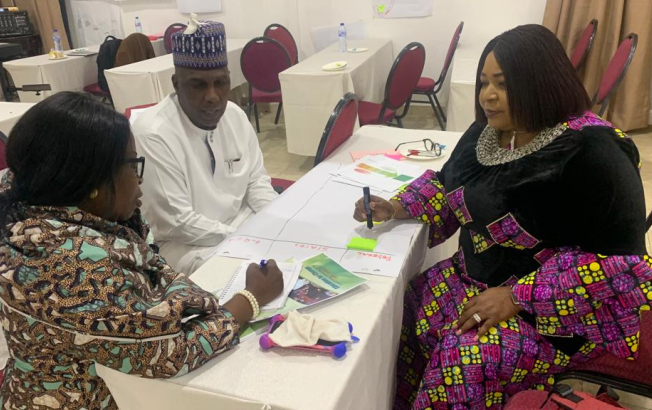Transforming Education in Nigeria through GCI Alumni Perspectives
Julie Uzor, Deputy director of the Nigerian Federal Ministry of Education tells us about GCI’s impact in her country
The Gender at the Centre Initiative (GCI), a joint initiative of IIEP-UNESCO and UNGEI, has made progress in promoting gender equality in education in Nigeria. Through training programs and capacity development activities, three member states have translated the National Policy on Gender and Education into concrete operational plans, aligning them with other states.
"Gender-responsive education planning in Nigeria has paved the way for the integration of gender into the country's governance and education policies," says Julie Uzor Adeno, Deputy Director of the Nigerian Federal Ministry of Education.
Appointed as GCI's Focal Point in 2020 during the COVID-19 pandemic, she played a crucial role in arranging two training sessions on gender-responsive planning and management for education officers. These sessions, alongside other capacity development activities, fortified personnel with key skills to advance gender equality within the education sector. According to Julie Uzor Adeno, GCI has helped the education sector in Nigeria gain a greater comprehension of gender inequality and the significance of gender equality.



